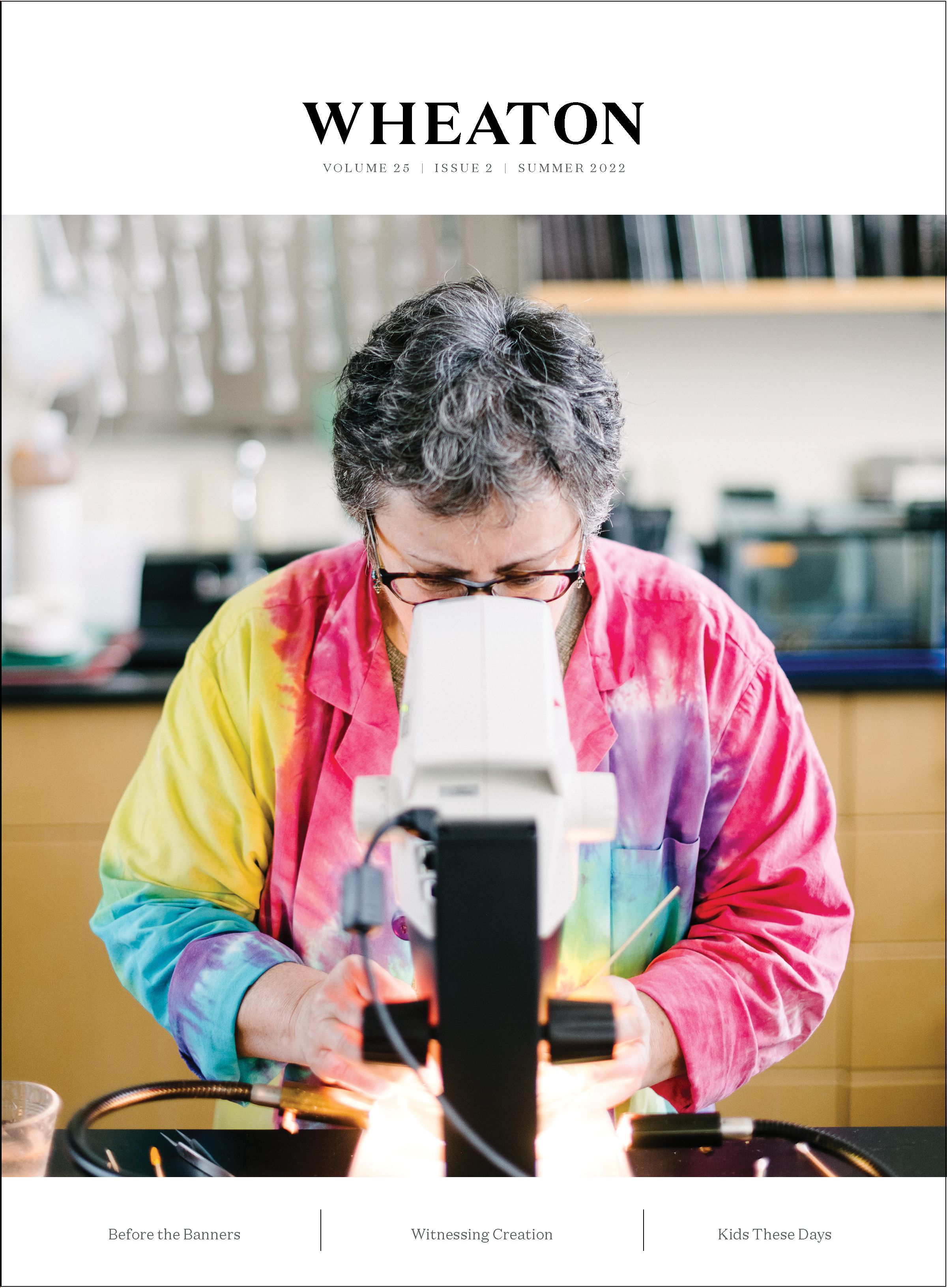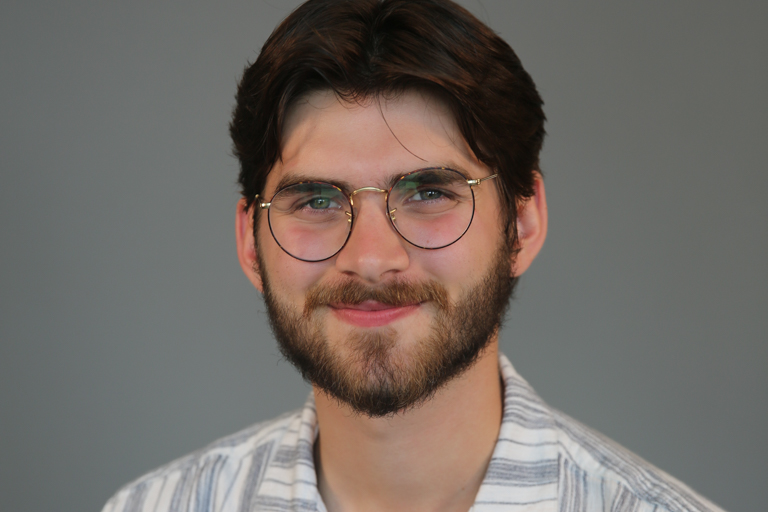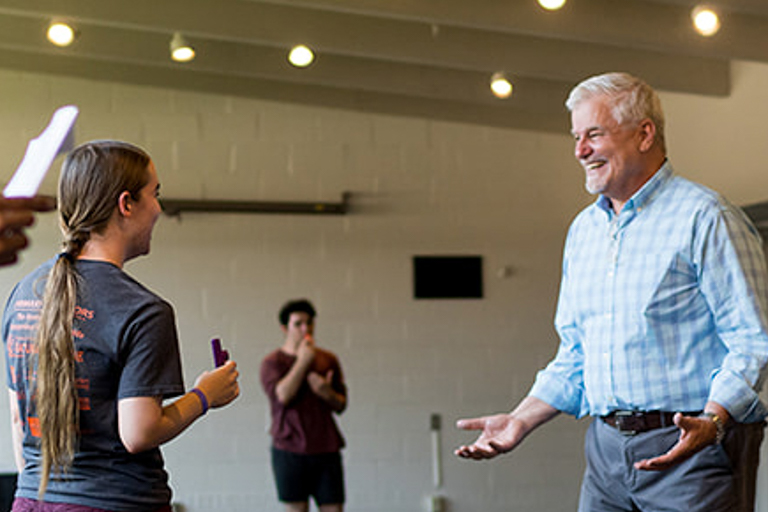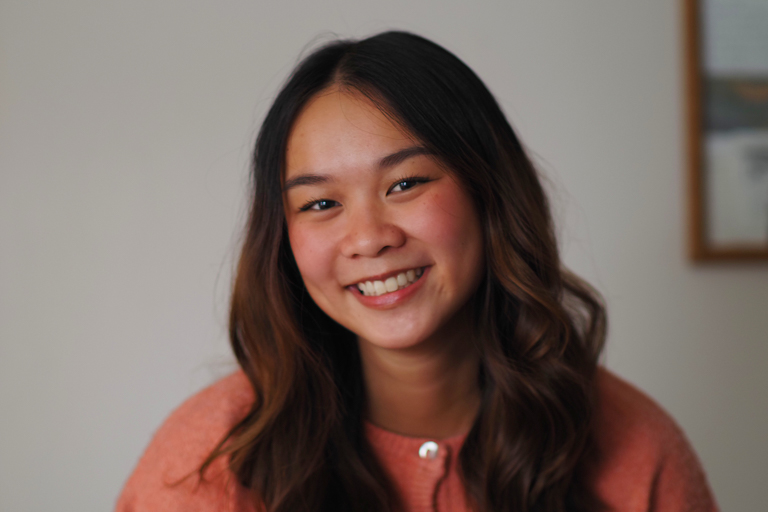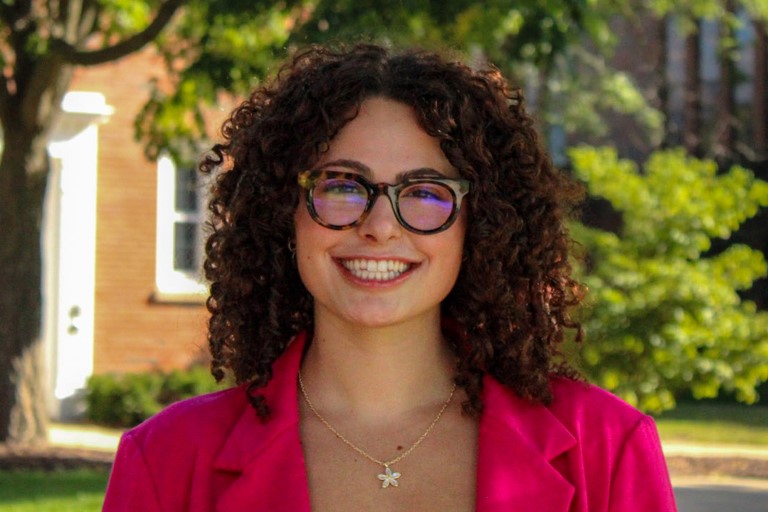Caring for the Foreigners in Your Midst
A graduate of Wheaton College’s Human Needs and Global Resources program, Lucy Bruno ’21 reflects on how building relationships with refugees reveals the heart of Jesus, who was himself a refugee with his family shortly after his miraculous Christmas birth.
Words: Melissa Schill Penney ’22
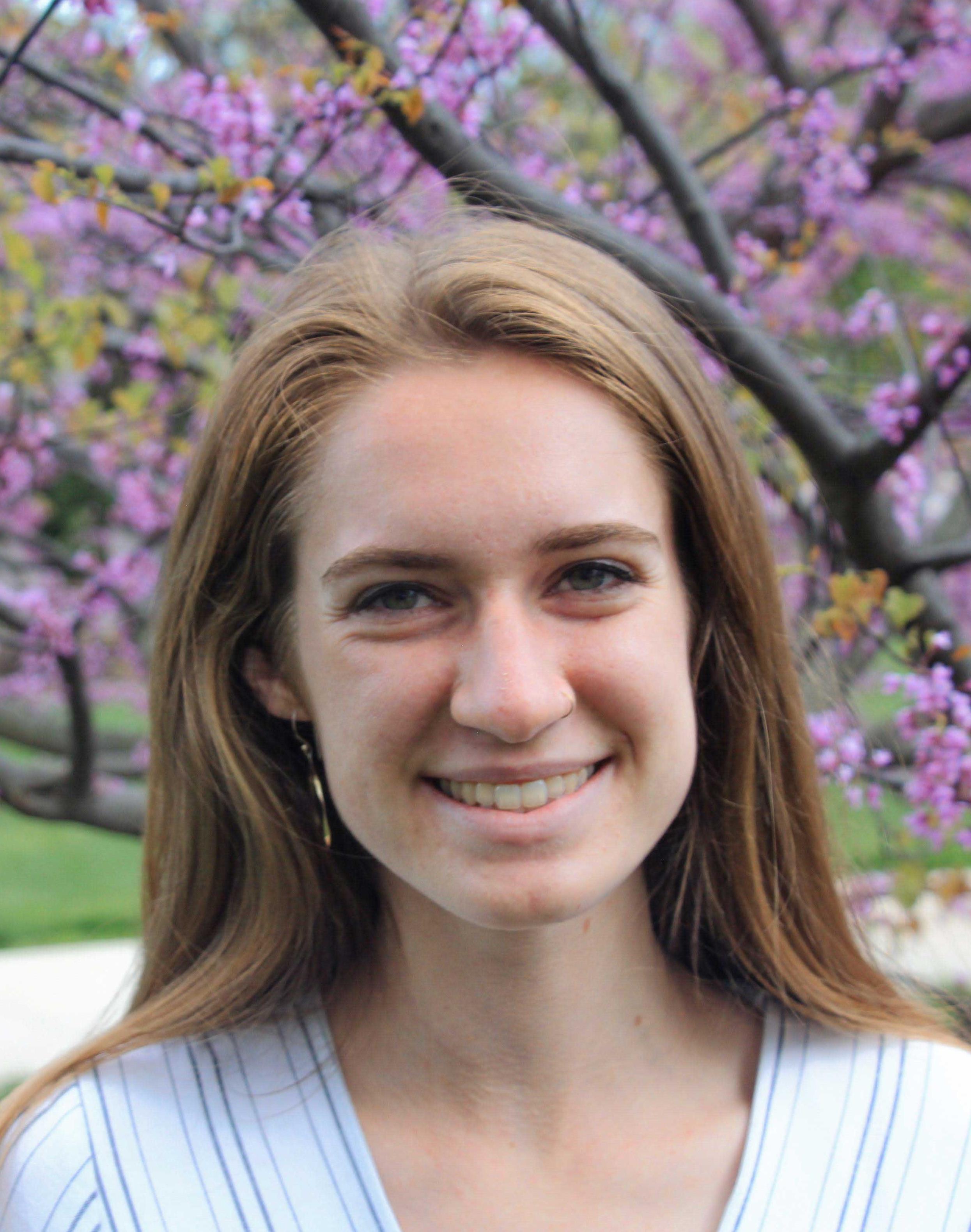
“The person in the room is the most important person in that moment. The person in front of you is the one that gets your attention.”
In a rural Colorado diner, Lucy Bruno ’21 was sitting across from a refugee, sharing stories in Spanish over their lunch. They began talking about the experience of refugees who flee their home, come to Colorado, and find jobs in a meat-packing plant. One woman’s job was to cut the tails off of slaughtered cows all day, every day.
“We were talking about how our meal was brought to us by folks that had been forced to flee their homes and come here,” Bruno said. “Our waitress kept saying how impressive it was that I spoke Spanish. Honestly, out of everything that had come together to create that moment, my ability to speak Spanish was not the most impressive thing.”
This scene transpired in the fall of 2020 during an internship Bruno completed through the Human Needs and Global Resources (HNGR) program, an academic certificate program that allows students to engage with intercultural learning, justice, hospitality, and peace through a six-month residency and internship in a foreign community. When Bruno visited Wheaton, she was immediately drawn to the program and envisioned herself embarking on an international learning experience. When COVID-19 hit, her international plans were dismantled, but her domestic placement through HNGR still offered her a rich, multicultural experience.
Bruno spent that fall 2020 semester working with the International Association (IAFR) for Refugees. Most of her time was spent with refugees that had been in the States for over five years and were dealing with questions of involvement, community, and long-term flourishing. As a research and development intern, her primary focus was to create connections and community engagement through means such as creating relationships between IAFR and local Latinx churches.
After graduation, Bruno pursued a job where she could continue working with refugees. She currently serves as a case worker with World Relief in Chicago. Her day-to-day work consists of helping refugees in their first days in the United States as they settle into their apartment, learn public transit, and apply for government aid programs.
“The Bible is so full of talking about caring for the foreigners in your midst and working with World Relief is a very tangible way to do that,” Bruno explained. “Something that drew me back to working with refugees is I’m curious about the experience of Jesus entering a family who has to flee shortly after their son is born. They were refugees: forcibly displaced people, crossing international borders, fleeing a well-founded fear of persecution. Why would God enter the human scene in that specific situation? I hope that by working closely with refugees I can learn more about the heart of God.”
Of course, the work comes with plenty of challenges. Most of the new refugees are English language learners, and many are experiencing significant culture shock. One of the difficult parts of Bruno’s job involves helping her clients adjust their expectations. After leaving their home and spending years in refugee camps, America can seem like the promised land where all of their struggles will finally cease. However, there are hundreds of hurdles waiting for them the moment they touch down in the U.S. Walking each person through the simultaneous cultural orientation and onslaught of practical logistics can be overwhelming.
Bruno’s approach to the situation is gentleness. “I think that there’s value in gentleness and being able to say radical things gently,” she reflected. “For myself, I have to ask what role gentleness could play in dealing with clients who have dealt with so many traumatic things.”
As Bruno reflected on her daily interactions with refugees, she explained that above all else, she hopes to affirm each person’s dignity by bearing witness to their stories. Her time in the Human Needs and Global Resources program taught her that while it is important to be informed about global issues, it is equally important to have a local focus.
She tries to abide by this principle: “The person in the room is the most important person in that moment. The person in front of you is the one that gets your attention,” Bruno said.
